News
Provide children with education, protect them from early sex …Gender expert urges parents in UWR

Madam Charity Bature (with microphone), addressing the community members
The Upper West Regional Director of the Department of Gender, Madam Charity Bature, has called on parents to take responsibility for their wards to help prevent teenage pregnancy and school dropout.
She said parents were responsible for providing for their children in terms of food, clothing, and shelter; however, some parents rather encouraged their wards to go outside and provide for themselves, which in some cases leads to teenage pregnancy.
Madam Charity Bature made the call at a community engagement on Social and Behavioural Change (SBC) organised by the Club of Children and Youth in Broadcasting (CYIB-Curious Minds) in partnership with Ghana Broadcasting Corporation (GBC) and the United Nations International Children’s Emergency Funds (UNICEF) at Kagu in the Wa Municipality.
She said the high increase in school dropouts was worrying, and parents needed to take action to ensure children became responsible as they grew.
Madam Charity Bature urged parents and community leaders to encourage their pregnant girls to go back to school after delivery to carve a better future for themselves and their babies.
“Let’s own up to our responsibilities as parents and train our children to become successful in the future. We need to have time to educate our girl child at home. When you have no time for the child, the child becomes infl uenced by peers and, in the end, becomes pregnant and a school dropout,” she said.
She stressed the need for parents to desist from marrying off their children and rather provide them with education and also protect them from early sex.
She encouraged young people, especially women and children, to speak up on issues that affected them.
She advised girls in the community to take their education very seriously and urged the chiefs to strengthen measures to curb the menace of school dropouts.
The Project Coordinator of CYIB-Curious Minds, Mr. Kingsley Obeng-Kyereh, said the engagement sought to create a platform to interact with children, parents, and community leaders to understand their challenges and also educate them on the need to be responsible for their children.
He said the best role model for a child was the parents, and he urged parents to live an exemplary life for their wards to emulate.
Mr. Kingsley Obeng-Kyereh said lack of parental care for children was one of the causes of teenage pregnancies and child marriage and encouraged parents to double their efforts in catering for their children to help curb the situation.
He said Curious Minds sought to ensure that children and youth were well informed and participated in decision-making on issues affecting them by sharing information, building partnerships, and generating knowledge.
From Rafia Abdul Razak, Wa
News
Mrs Dotse-Ametsi installed as Devt Queen
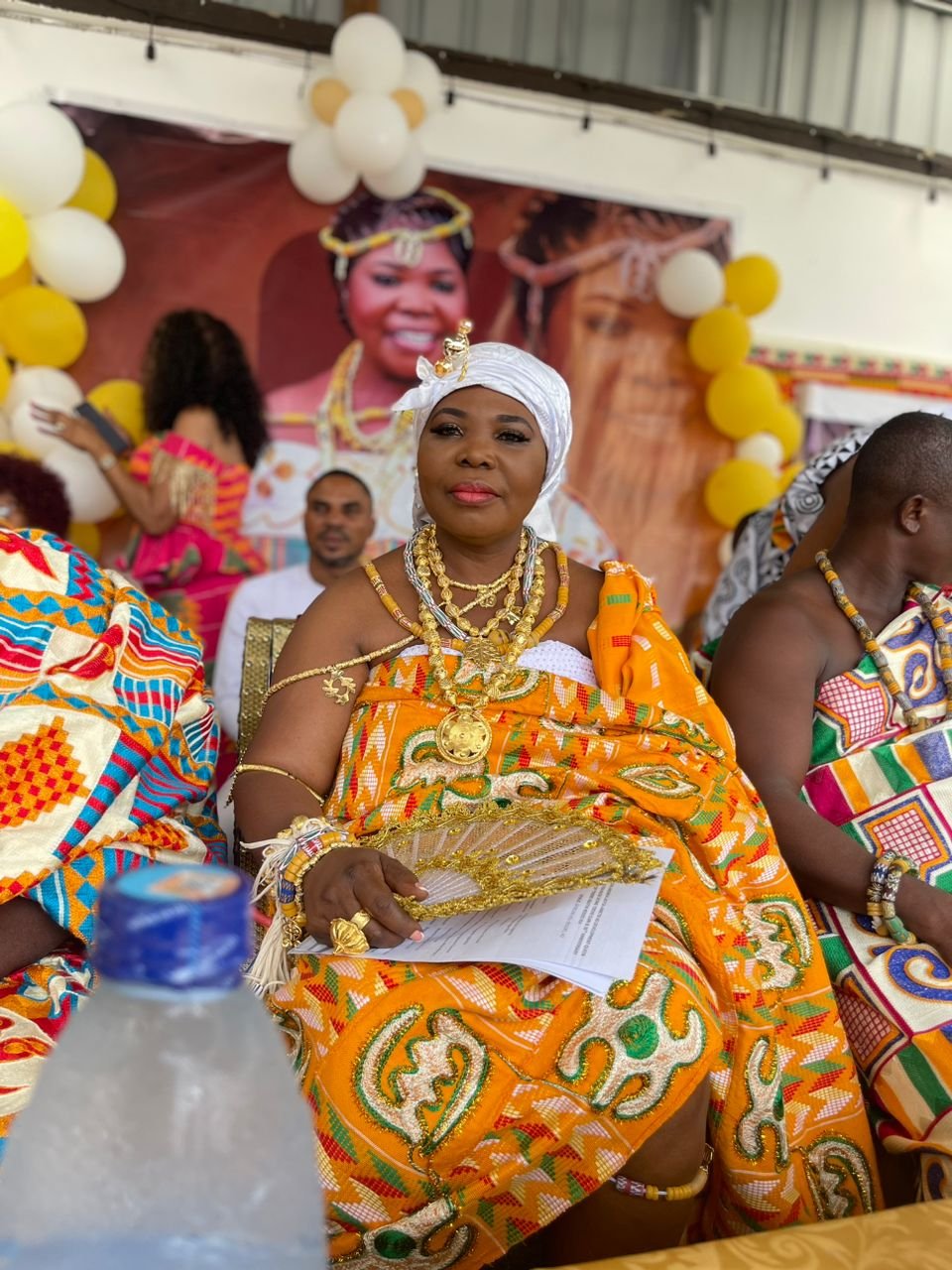
The Dome-Tsevie clan of Abutia-Kloe in the Ho West District of the Volta Region last weekend outdoored Mrs Joycelyn Akorfa Dotse-Ametsi as a Development Queen.
The ceremony which attracted traditional, political and business executives among others had Mr Bernand Mornah of the People’s National Convention Party as the special guest of honour.
Mrs Dotse-Ametsi with the ceremonial name of Mama Woe-Nenyo I, was tasked with liaising and spearheading development projects and educational reforms among others.
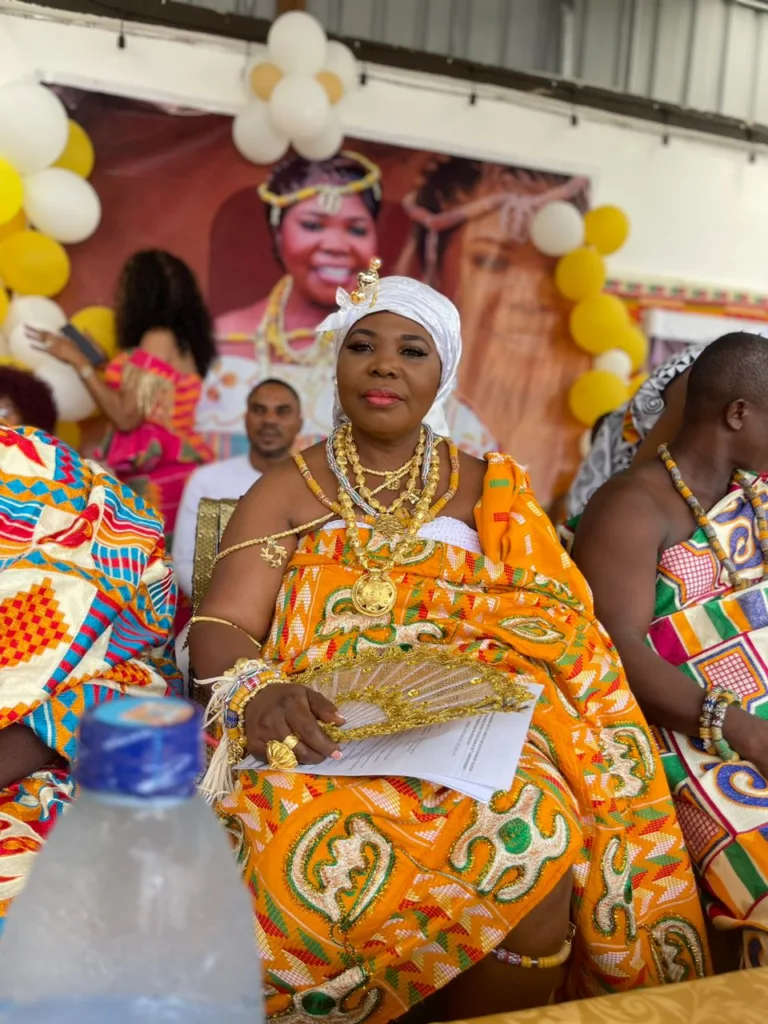

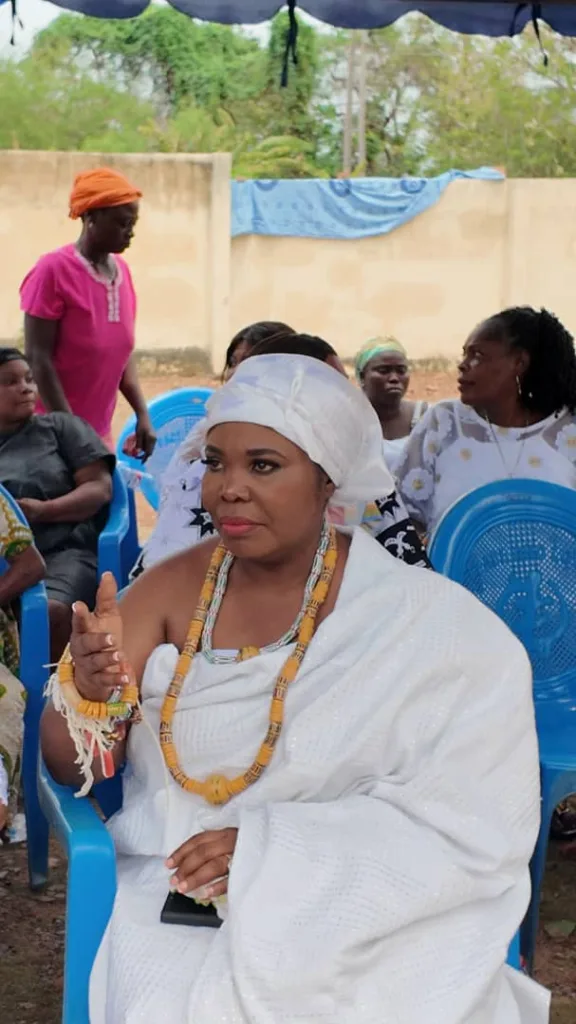

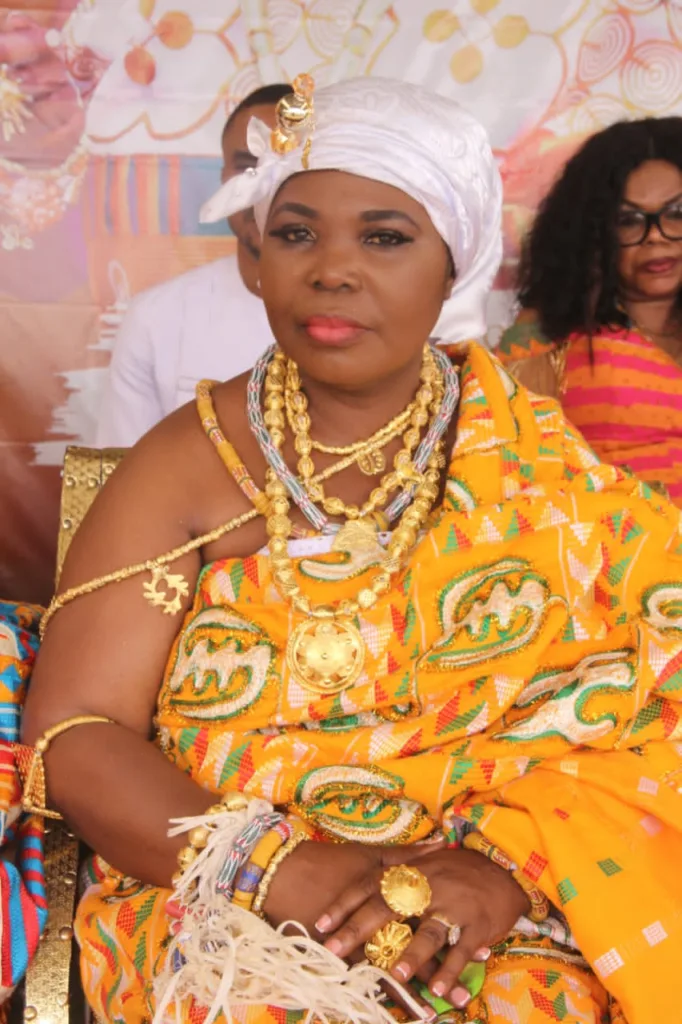

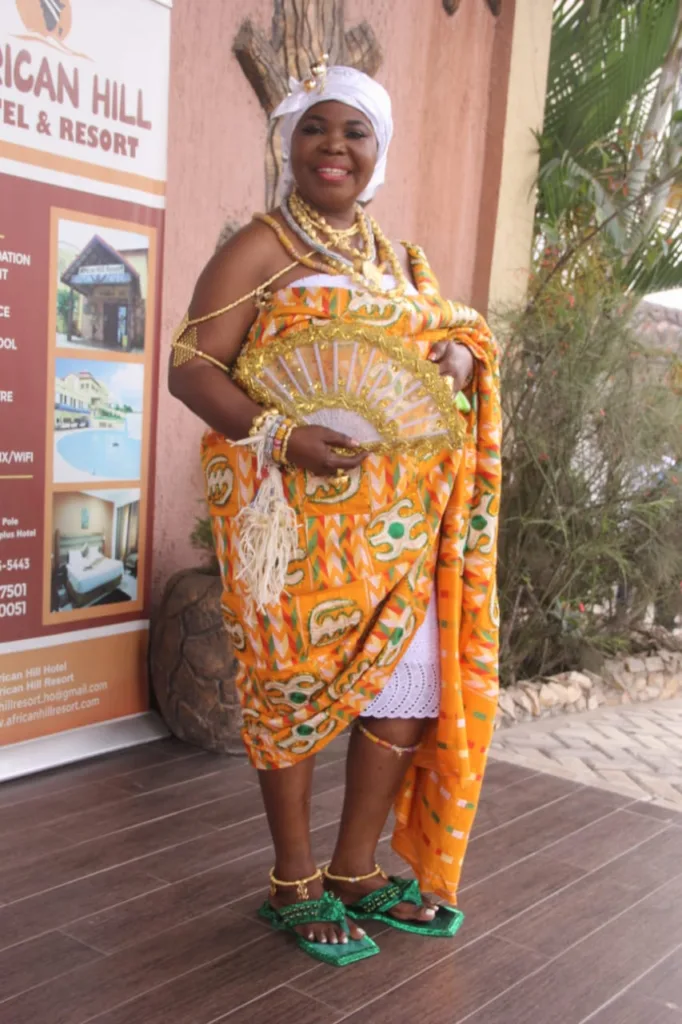

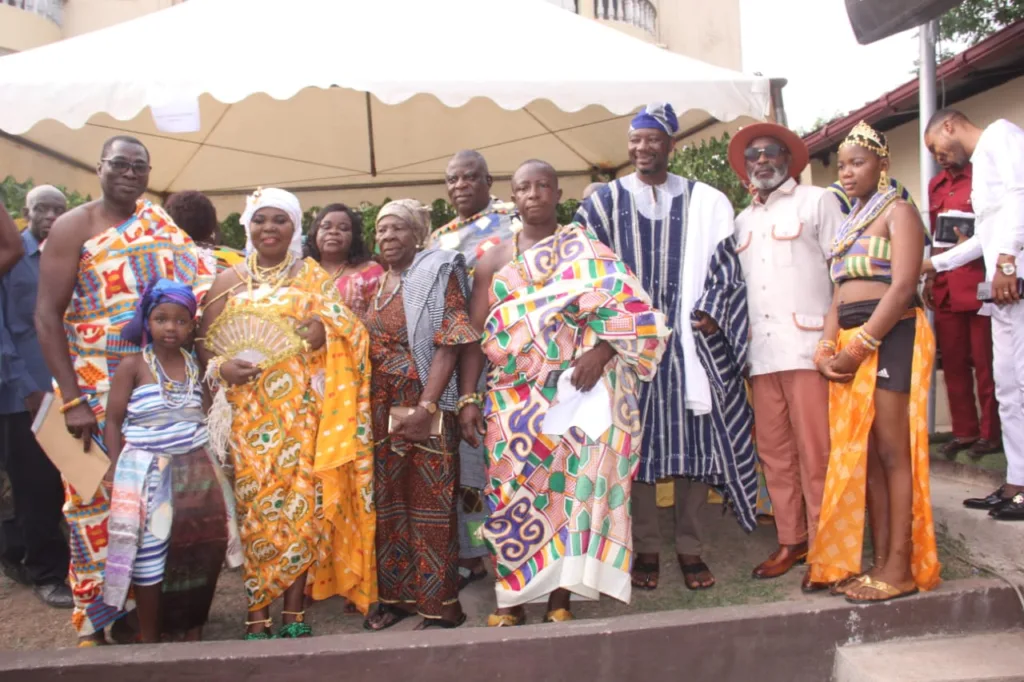

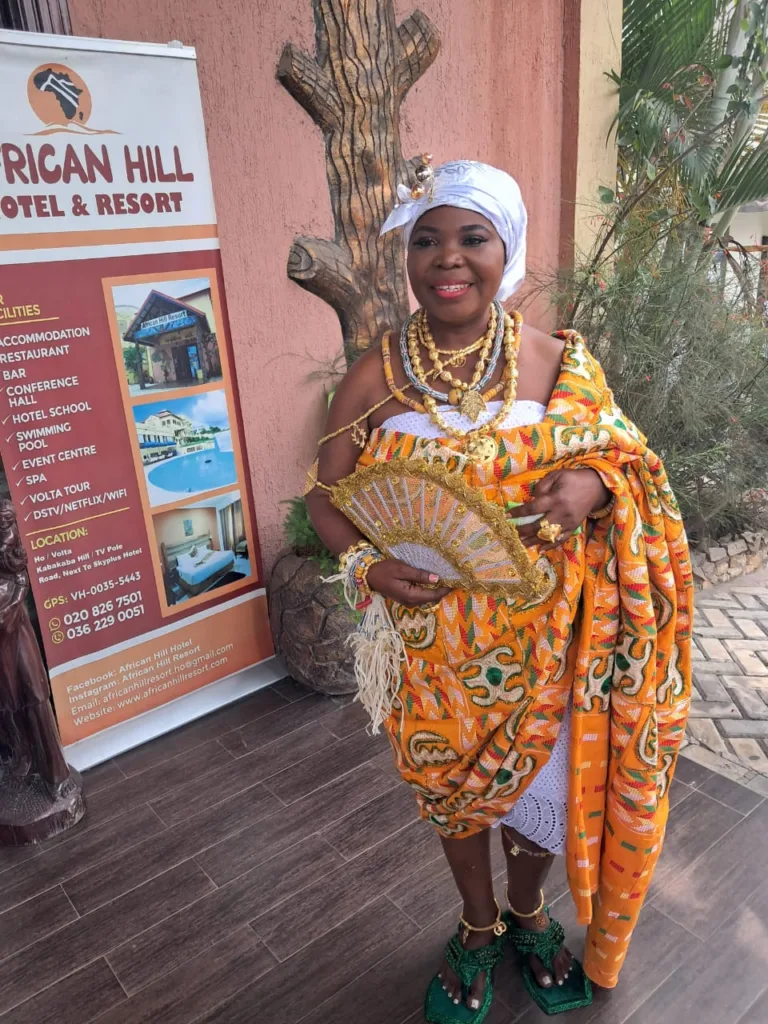
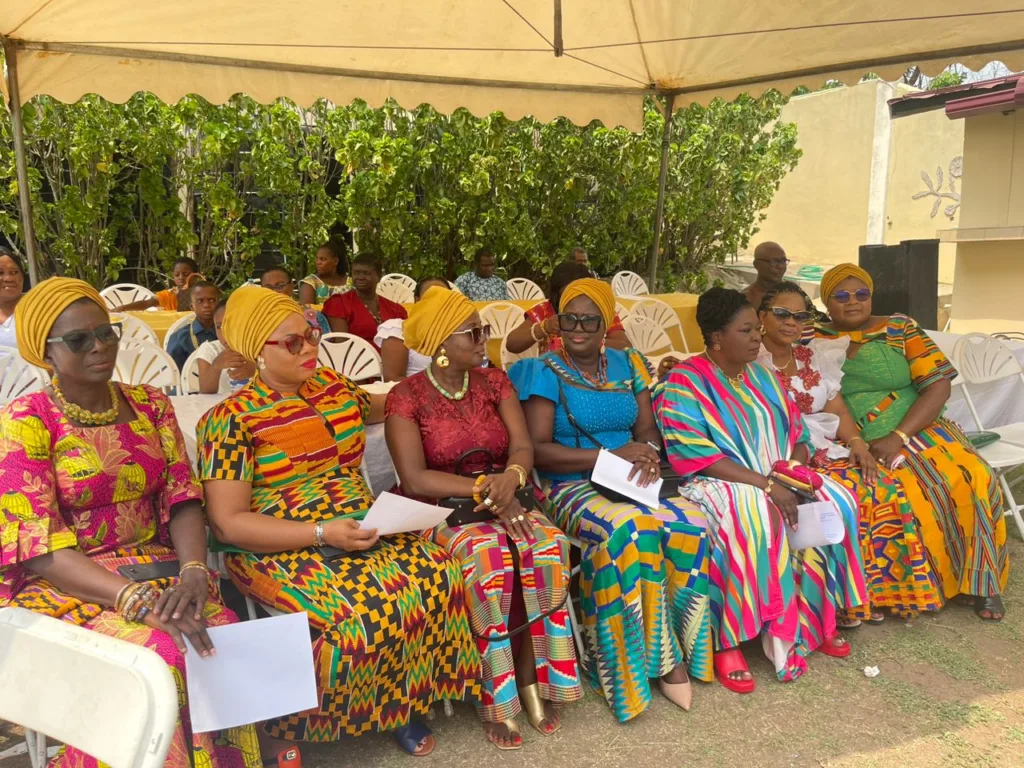
The ceremony also coincided with the 30 years anniversary of the death of Torgbe Abutia Kodzo XVI (ex-President of the Volta Regional House of Chiefs) who happened to be her father.
Mama Woe-Nanyo I promised to adhere to the promise and expectations her clan has in her and not depart from the honour and respect her father radiated during his reign.

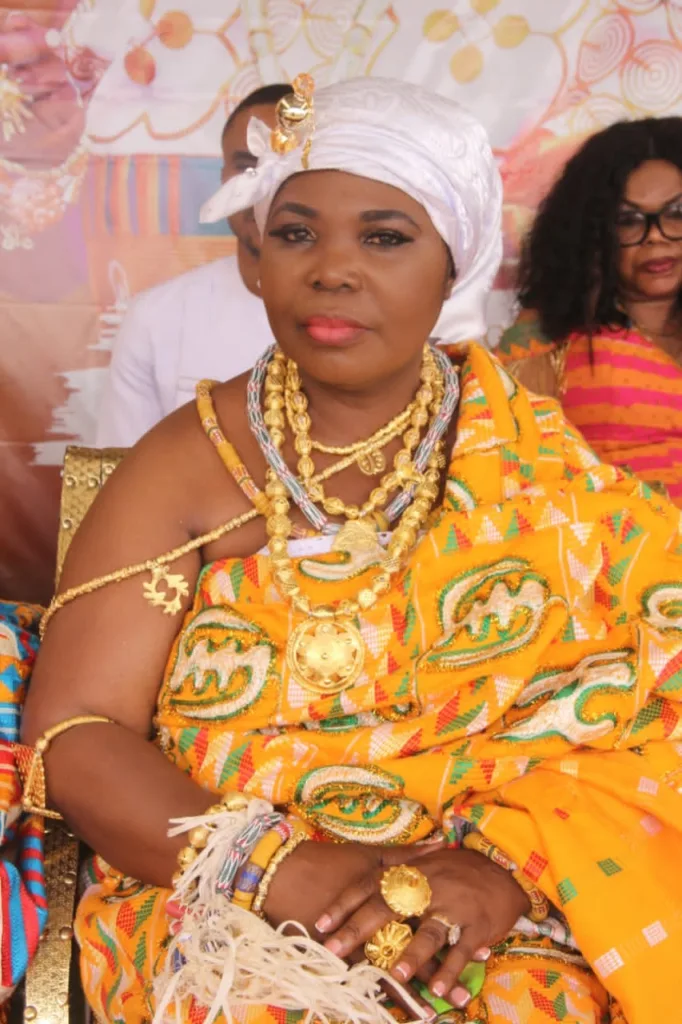
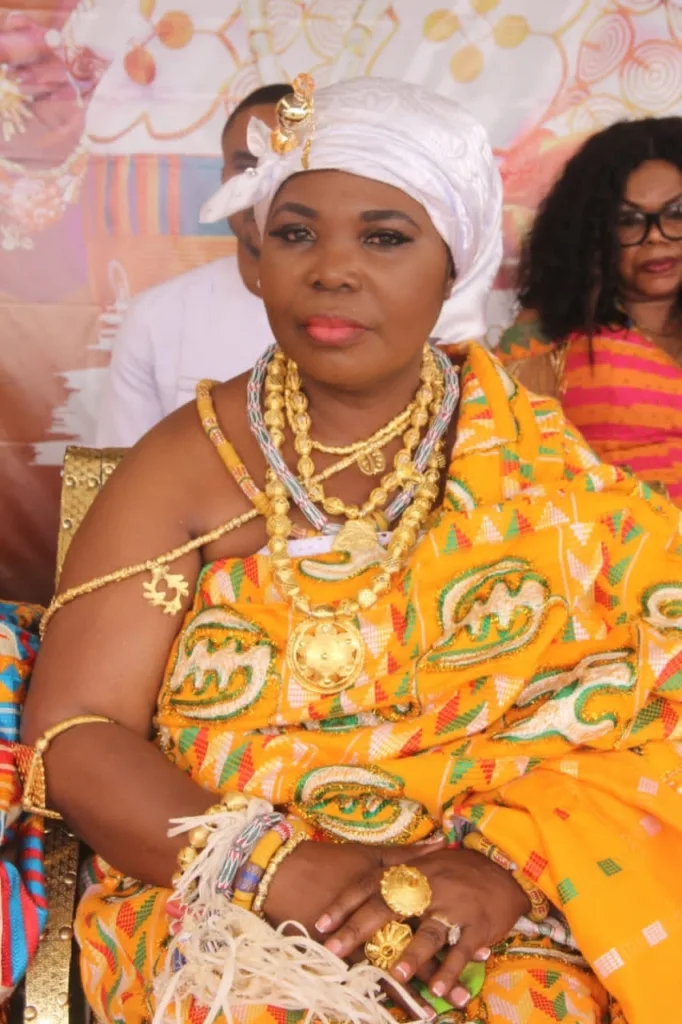
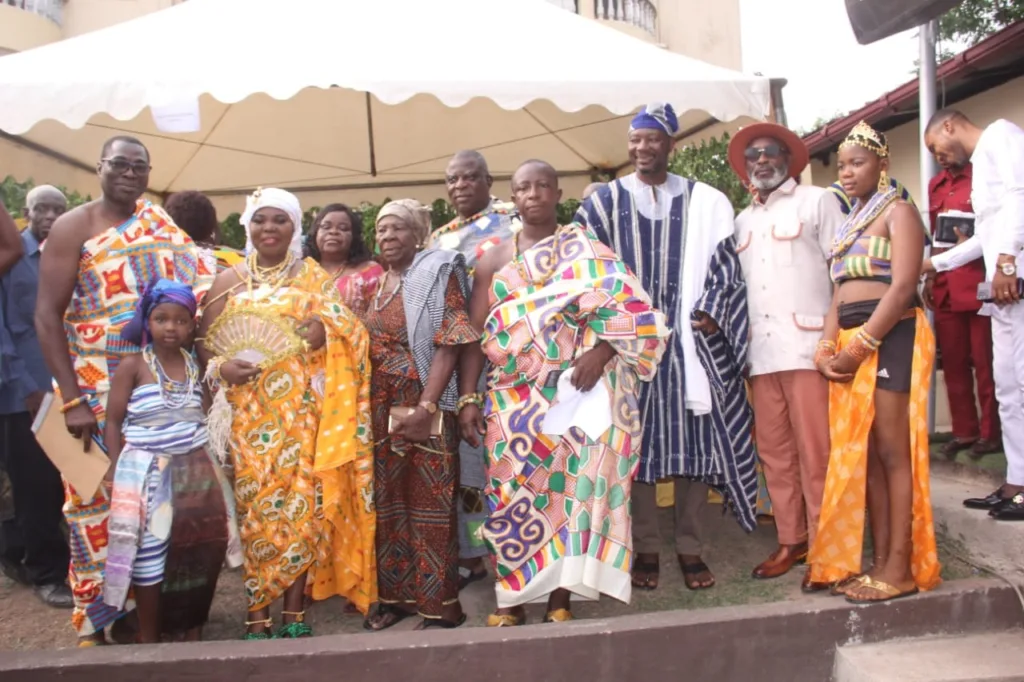

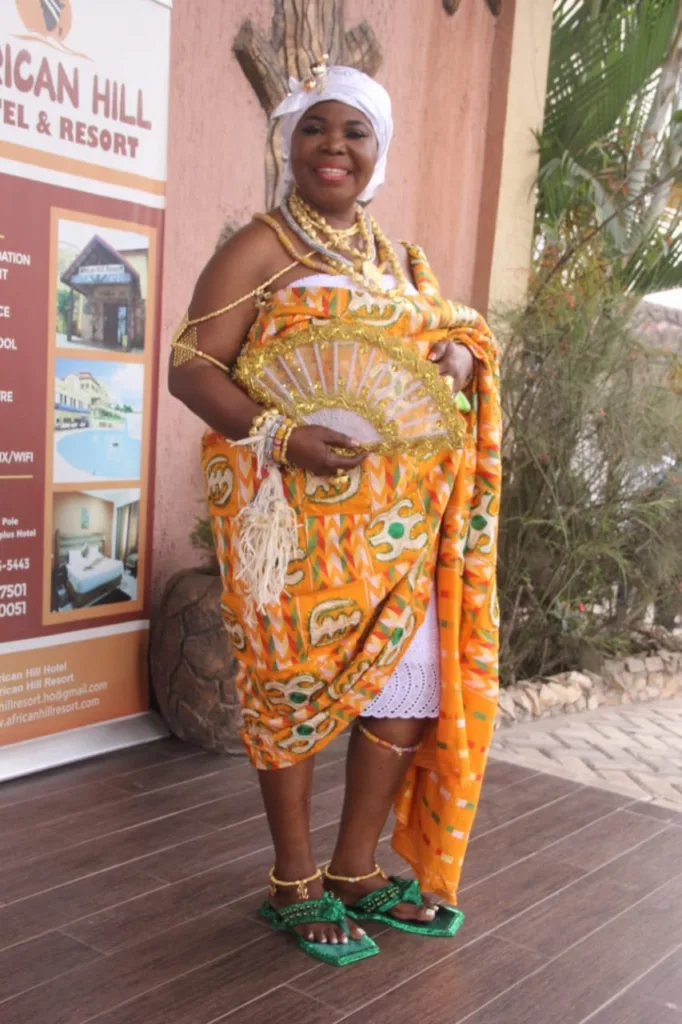


She called for the various clans of Abutia-Kloe to come together for the rapid development of Kloe and the Abutia Traditional Council.
News
The Golden Gift of the Savannah: The untold story of Shea Nut and Shea Butter
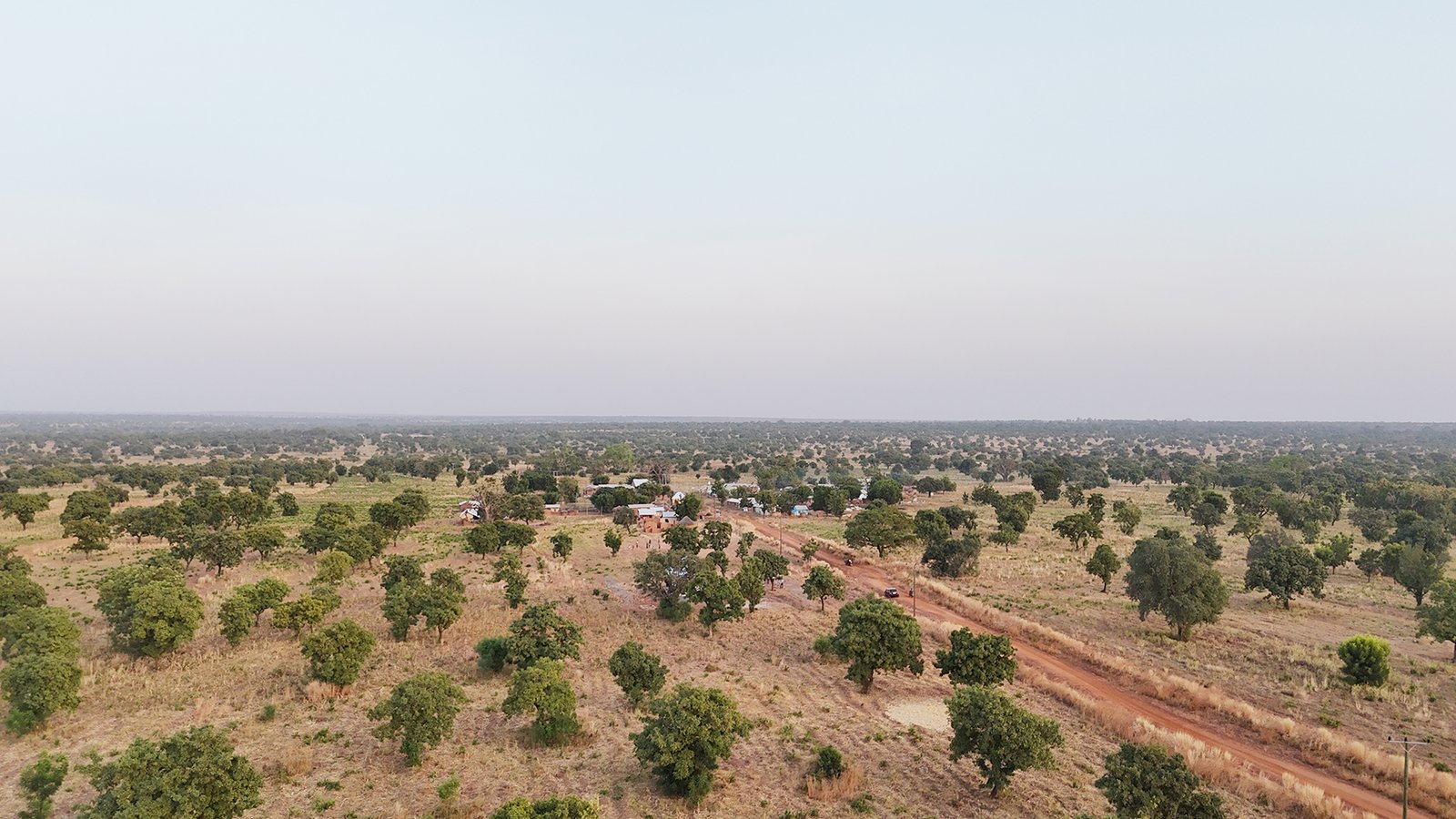
In the vast Savannah of Northern Ghana, where the sun ‘kisses’ the earth stands a tree revered for its economic and cultural significance – the shea tree.
For centuries, the shea nut plucked from this resilient tree, has been the lifeblood of countless women and communities, shaping economies, traditions, and futures across the northern regions of Ghana.
To many women, shea butter is not merely an ingredient in cosmetics and skincare.
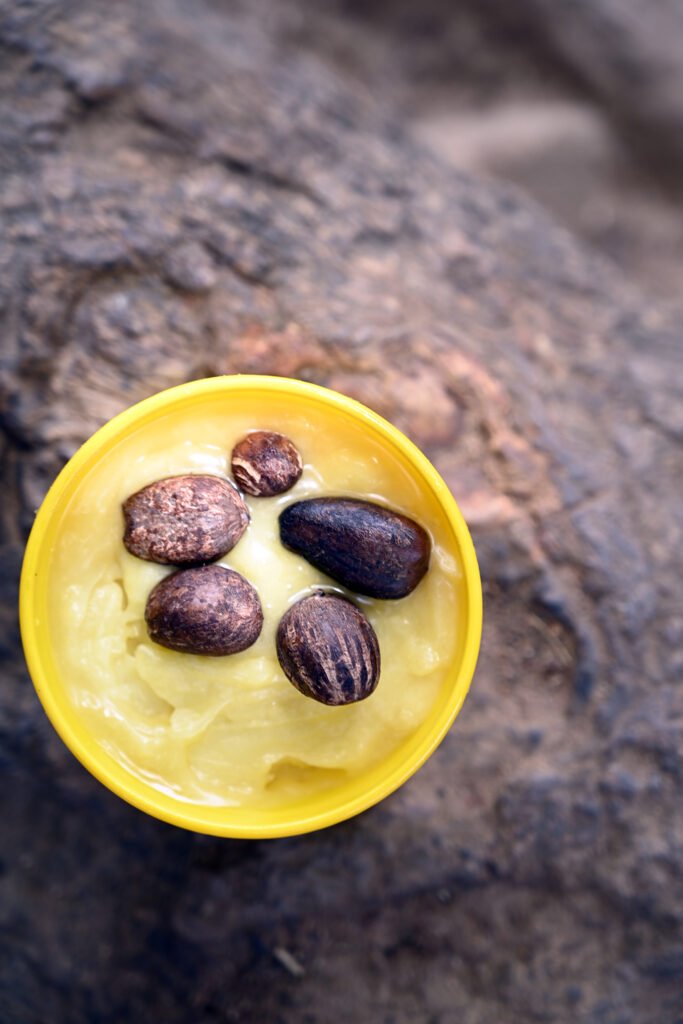
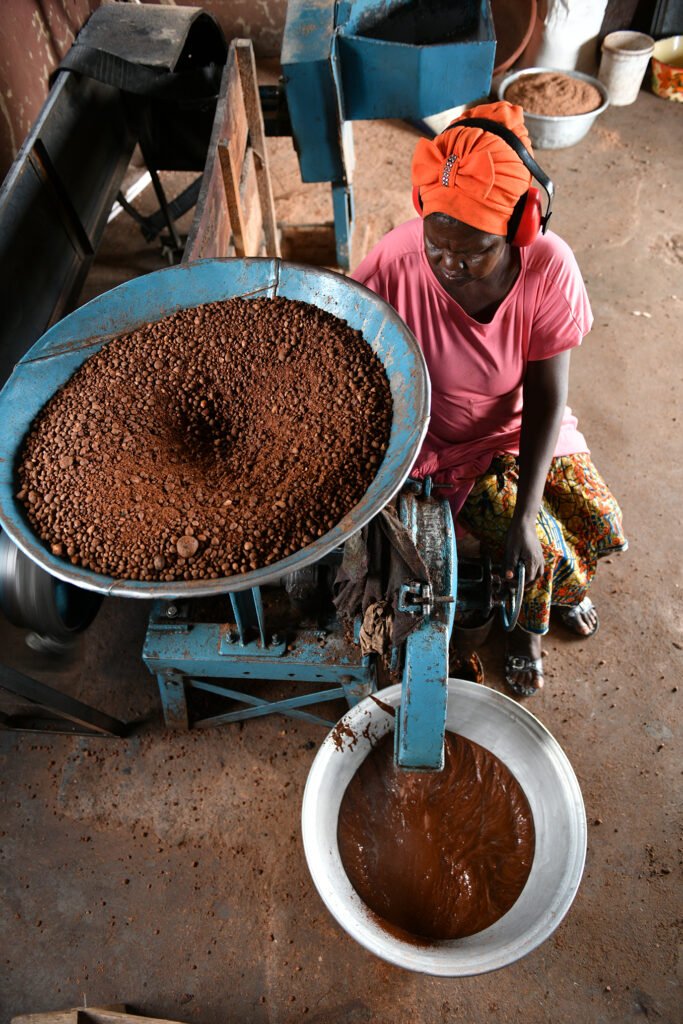
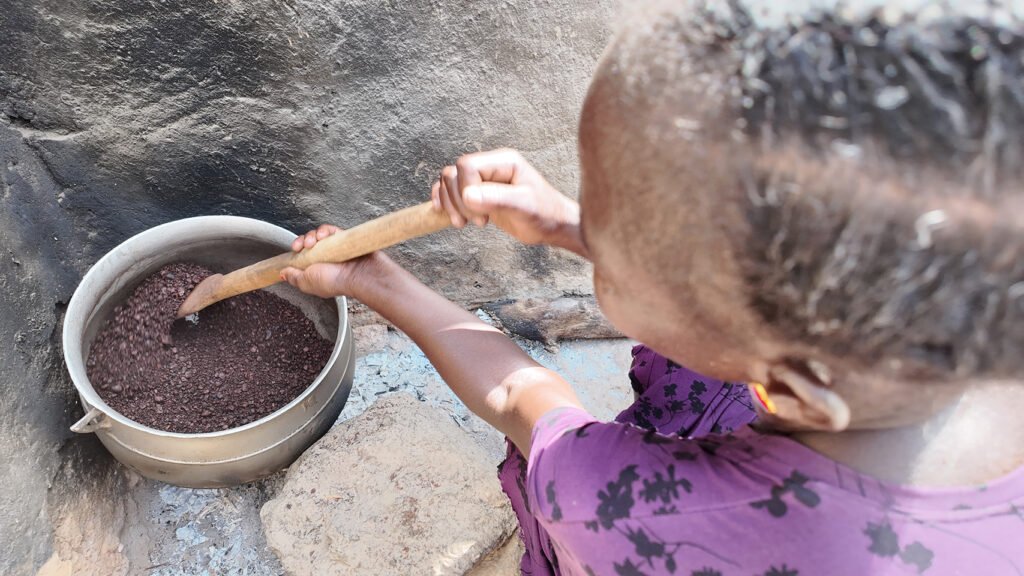
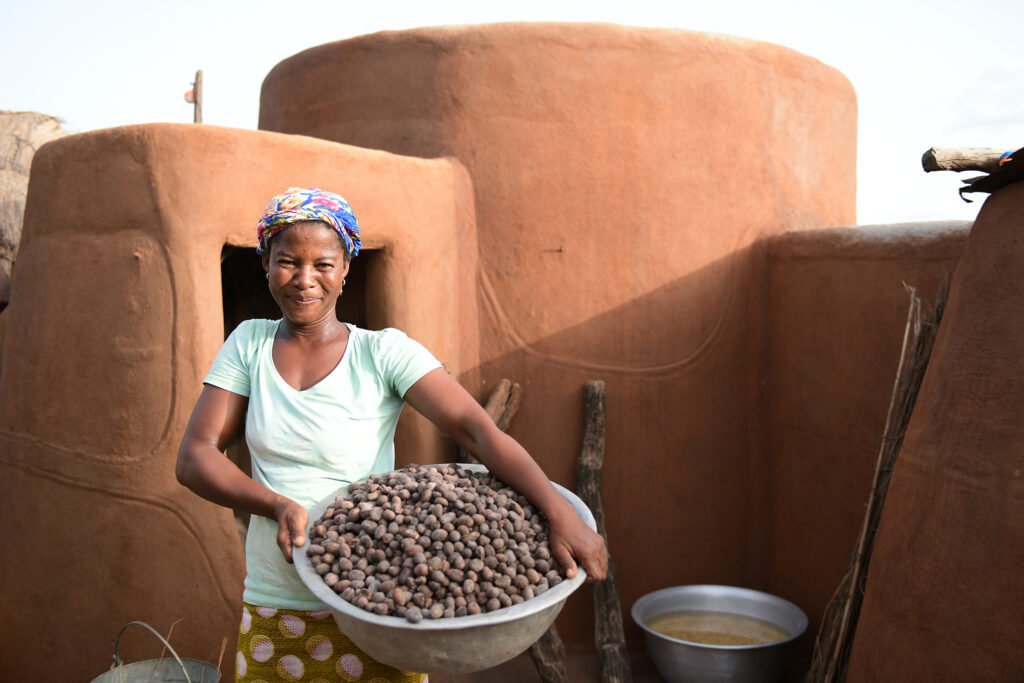
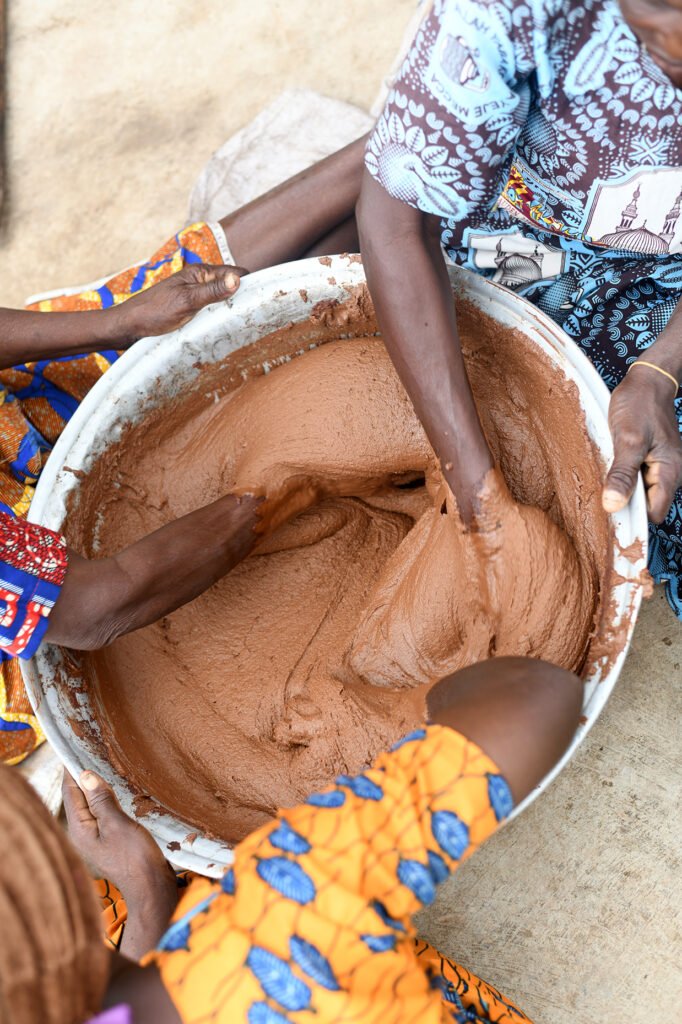
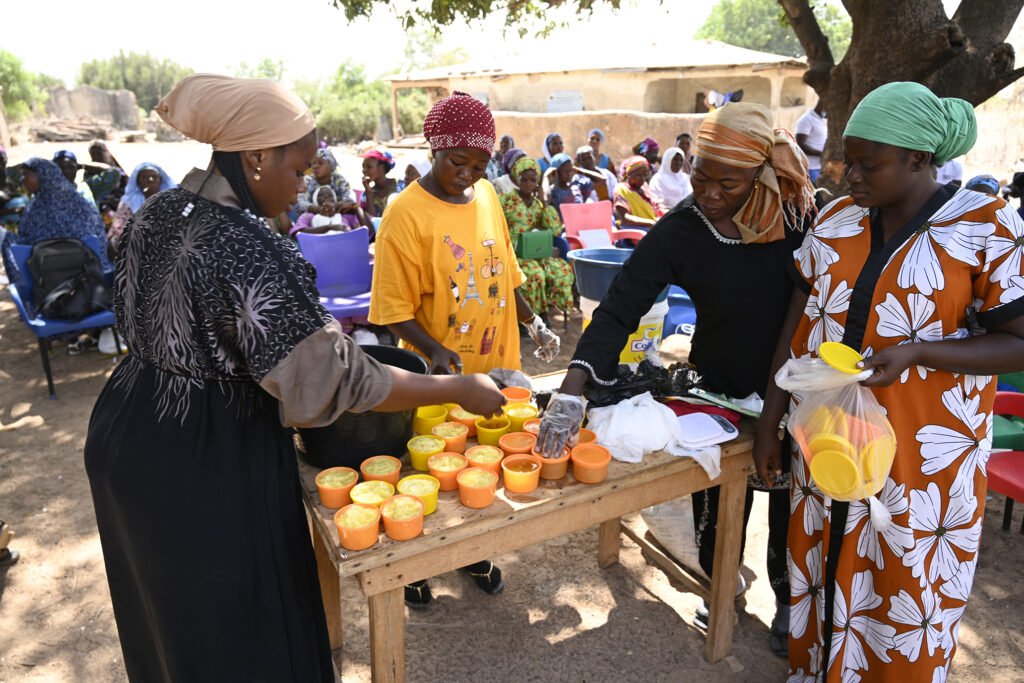
It is a symbol of resilience and economic empowerment. This golden treasure provides a sustainable income for women who painstakingly gather, dry, and process the nuts into a rich butter renowned worldwide for its healing and moisturizing properties.
Beyond its nuts, the shea tree produces a sweet, edible fruit packed with vitamins and nutrients. Its pulp is an excellent source of vitamin C, fiber, and antioxidants, which boost immunity, aid digestion, and promote overall health.
The fruit, often consumed fresh, serves as an essential source of nourishment for rural communities.
However, the journey from shea nut to shea butter is a laborious process requiring skill, patience, and sheer determination.
Women venture into the wild, walk long distances to collect fallen shea nuts.
After gathering, the nuts are boiled, sun-dried, and cracked open to reveal the kernels. These kernels are then roasted, grinded, and kneaded by hand until the oil separates from the solids, forming the smooth, fragrant butter which is now a staple in beauty and pharmaceutical industries, globally.
Shea butter is not the only valuable product derived from this remarkable tree. The shea nut also yields a highly nutritious cooking oil used traditionally in West African cuisine.
Rich in healthy fats, it promotes heart health and serves as a healthier alternative to palm oil and other cooking oils.
As global interest in natural and sustainable products grows, the demand for shea butter has surged.
Major cosmetic brands have embraced it as a key ingredient in lotions, hair products, and medicinal ointments, thanks to its high concentrations of vitamins A and E and anti-inflammatory properties.
Additionally, the food industry now recognises shea butter as a viable alternative to cocoa butter in chocolate production, further expanding its market value.
Yet, despite its growing international appeal, the shea industry faces significant challenges.
Climate change threatens the sustainability of shea trees, while middlemen and unfair pricing structures often limit the earnings of the women who produce the butter.
However, initiatives promoting fair trade, value addition, and sustainable harvesting practices offer hope for better economic returns for shea producers.
Organisations and cooperatives are working tirelessly to protect the shea tree and enhance the livelihoods of shea butter producers.
By introducing modern processing techniques, offering training programmes, and securing fair trade agreements, these efforts are ensuring that the legacy of shea butter continues to benefit local communities for generations to come.
Maria Johana Yuorpor, one of the women leading this transformation is a dedicated shea butter processor. For over a decade, she has championed quality production while equipping women with the skills to refine and add value to this ‘women’s gold.’
Maria’s journey into the shea butter industry was not one of mere chance but of deep-rooted passion and an unyielding commitment to uplift her community.
Growing up in a region where shea butter was a staple in homes used for cooking, skincare, and medicinal purposes, she witnessed firsthand its potential as a tool for economic empowerment.
Determined to make a difference, she immersed herself in intensive research and training, perfecting her craft to meet international standards.
Over the years, her expertise and commitment to quality production have earned her local and international recognition, shining a spotlight on Upper West shea butter.
According to Maria, the best shea butter comes from the Upper West Region due to the naturally rich and unpolluted environment in which shea trees flourish.
“The climate and soil here give our shea nuts a unique richness, which translates into high-quality butter with superior texture and moisturizing properties as well as the best way of processing it,” she explains.
Maria said, said when she begun understanding the importance of value addition, she started training women in her community on advanced processing techniques, including refining, packaging, and product diversification.
“Today, many of my trainees have expanded beyond producing raw shea butter to crafting soaps, body creams, and essential oils, all tailored for export markets”, she added.
To further enhance the shea industry and support women entrepreneurs, the Kosmos Innovation Center (KIC) among many organisations has stepped in with training and funding opportunities.
Mrs. Mercy Tuffour, Gender and Safeguarding Specialist in an interview said, KIC through their initiatives were training women on modern techniques in product formulation, branding, and market access, allowing them to elevate their shea-based businesses.
She emphasised the significance of these interventions: “We are committed to equipping women with the skills and resources needed to create high quality shea products that can compete in both local and international markets.
By adding value to raw shea butter, these women are transforming their livelihoods and securing better financial futures, where Northern Ghana becomes the hub of premium shea butter exports, driven by women entrepreneurs, she added.
She also advocated increased investment in shea butter processing facilities and seeks partnerships with global skincare and cosmetic brands to highlight Ghana’s superior shea butter.
As Maria Johana Yuorpor continues her mission, her story serves as an inspiration to many – proof that with passion, knowledge, and resilience, local resources can be transformed into global opportunities, changing lives one shea nut at a time.
Story/Photos from Geoffrey Buta, Nyoli, Upper West







